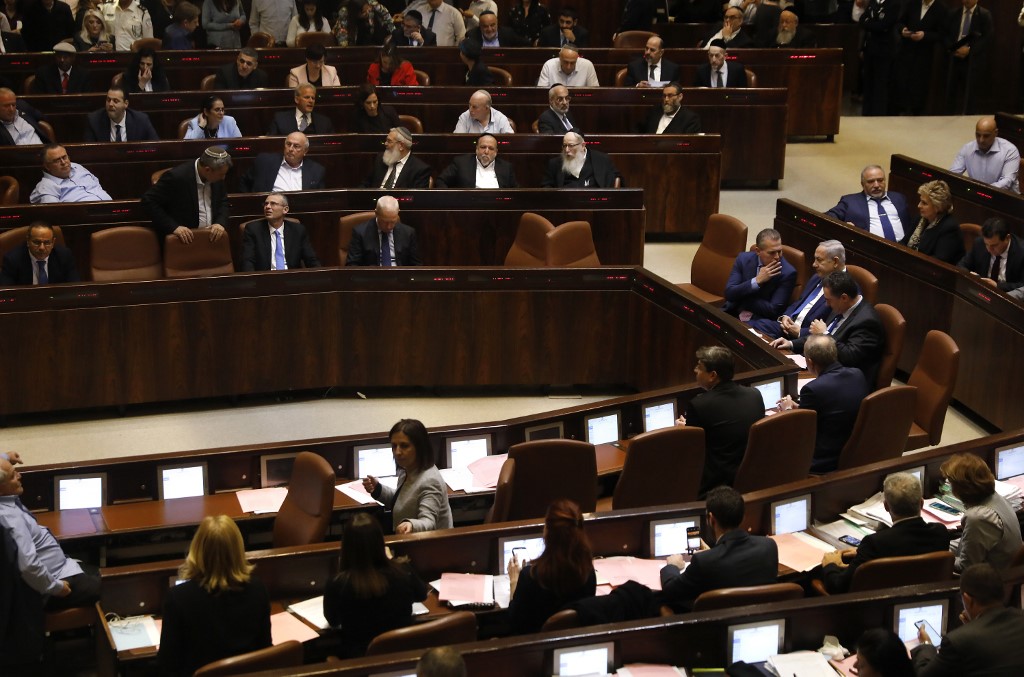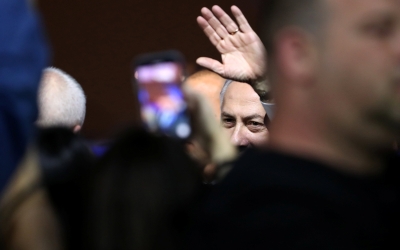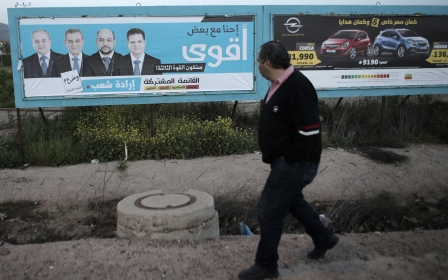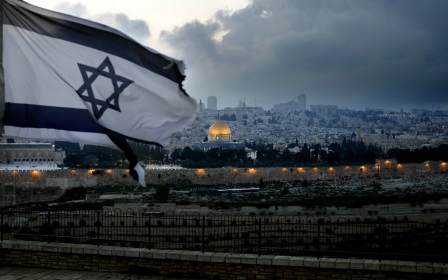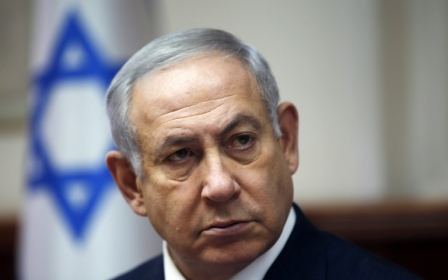What’s the alternative to participating in Knesset elections?
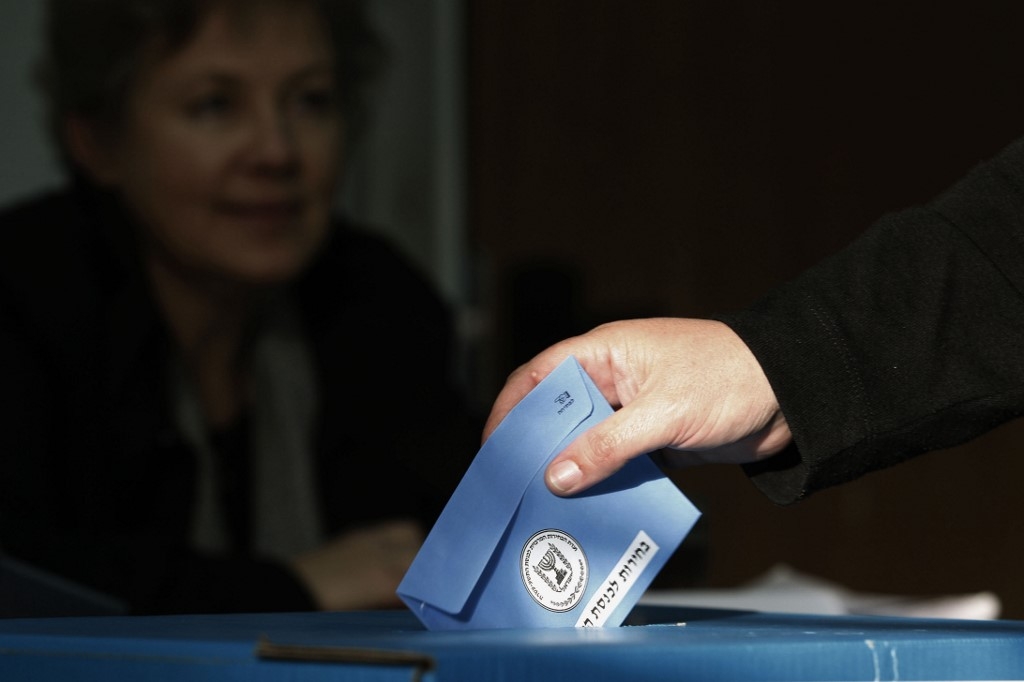
This month’s Israeli Knesset elections set a new record of Palestinian citizens boycotting the vote, whether for ideological reasons or political fatigue and disappointment with their representatives.
Disappointment with the failure of Arab political parties to keep their alliance in the Joint List played a big role in many citizens’ choice not to vote. They sought to send a message to their leadership.
The debate between the boycotters and voters was aggressive this time, including mutual accusations of betrayal. The discourse focused on who was more national than the other, and who cared more for the interests of Palestinian citizens of Israel.
But one question kept arising, with no real answer: What is the alternative to participating in Knesset elections?
Drivers of electoral participation
New MEE newsletter: Jerusalem Dispatch
Sign up to get the latest insights and analysis on Israel-Palestine, alongside Turkey Unpacked and other MEE newsletters
Participation in the elections has four main drivers. One stems from the concept of active, as opposed to passive, citizenship in a state that tries to alienate us from every sphere of influence.
The second is the need to care for our daily lives as alienated citizens - to directly face a prolonged policy of discrimination, oppression and anti-development.
The third relates to the context of the Palestinian situation. We see Israel’s apartheid regime as eternal, and our citizenship in a colonial state as an unchangeable fate.
It was pathetic to see political parties asking 'where is the alternative' in order to dismiss the boycotters’ campaign
We have disconnected our fate from that of other Palestinians whose existence is threatened by the same regime: “They” need to rid themselves of military occupation, but "we" need to achieve equality and survive in the Jewish state.
To survive, we need to be in the Knesset so that we can achieve budgetary progress here and there, or block a racist bill once in awhile.
The fourth driver relates to political self-interest. Parties need the budgets allocated to them per seat by the state in order to survive in a world of diminishing partisan organising.
Any discussion about alternatives should challenge these concepts and provide answers to them.
It was pathetic to see political parties asking “where is the alternative” in order to dismiss the boycotters’ campaign.
Discussing alternatives is not the boycotters’ job alone - it is mainly the job of the political parties, who claim to be the ideological and political leadership of the Palestinian minority, boycotters and voters alike.
Grassroots organisations
How can an alternative be discussed if these parties dismiss it right away? Isn’t it about time to open up and engage in a serious debate to evaluate participation in the Knesset, its pros and cons, and discuss alternatives? How about that as an alternative?
Assuming that the parties agree to engage in meaningful discussion, who is supposed to lead that process? To address this question, one should start by redefining the concept of leadership. Why is leadership reduced to representation in the Knesset?
While it is true that this is the only leadership directly elected by Palestinians in Israel, there are many groups active outside the Knesset doctrine, including the movement that advocates the boycott of Knesset elections, civil society, grassroots groups - especially among the youth - women’s groups, and more.
Some of these groups used to be more involved in leadership, as they had a seat at the High Follow-Up Committee for Arab Citizens of Israel’s table. This umbrella institution includes representatives from various movements, political parties and national organisations, but while it used to hold some authority in terms of steering decisions on issues concerning Palestinian citizens of Israel, this is no longer the case.
Power struggles
While some refer to the formation of the Joint List ahead of the 2015 elections as the main reason for pulling the leadership carpet out from under the committee’s feet, it’s important to remember that this was only the culmination of a process in which all concerned parties played a role in weakening the committee.
The committee was the victim of party competition and power struggles, which were prioritised over the common interest. Parties were divided over whether the committee should be democratically elected, an exhausting debate that ultimately led nowhere.
The committee was dominated by older men, and electing its head was always a battlefield that ended when the parties agreed on a nominee, regardless of his abilities. His only qualification would be that every party agreed to nominate him, just to block another party from taking the position.
It has also been a victim of the NGO sphere over the last three decades, as professional, well-funded NGOs have proven to be more efficient than the committee in responding to emergencies or advocating Palestinian issues on the international stage.
Strengthening the committee, liberating it from power struggles and restructuring it to represent all parts of society - especially women and youth - will be crucial in the days ahead.
Engaging the public
Who engages in the political process, and how, is another pressing question.
One of the side effects of engaging in Israel’s national elections is that parties have gradually started to relate to their constituencies as electorates that they need to serve and win votes from, but not also as masses that they need to politically educate, engage with and involve in rethinking political processes.
Any alternative will depend on the readiness of the people. If they are not involved, informed and engaged, no one can expect them to be ready
A direct outcome of that was the low voting rate among Palestinians this year, highlighting the fatigue and declining faith in political parties.
It’s time to change this attitude and involve the masses in political debates about vision, context, strategies and alternatives. This could happen through party mobilising.
To win votes, party supporters knock on the doors of citizens and hold public gatherings; there’s no reason why this can’t happen in order to hear people’s opinions and discuss their visions.
Any alternative will depend on the readiness of the people. If they are not involved, informed and engaged, no one can expect them to be ready.
Discussing alternatives to election participation is not the duty of the boycotters alone. It’s also the duty of political parties who should be brave and open to such a process - and this process should start today.
The views expressed in this article belong to the author and do not necessarily reflect the editorial policy of Middle East Eye.
Middle East Eye delivers independent and unrivalled coverage and analysis of the Middle East, North Africa and beyond. To learn more about republishing this content and the associated fees, please fill out this form. More about MEE can be found here.



